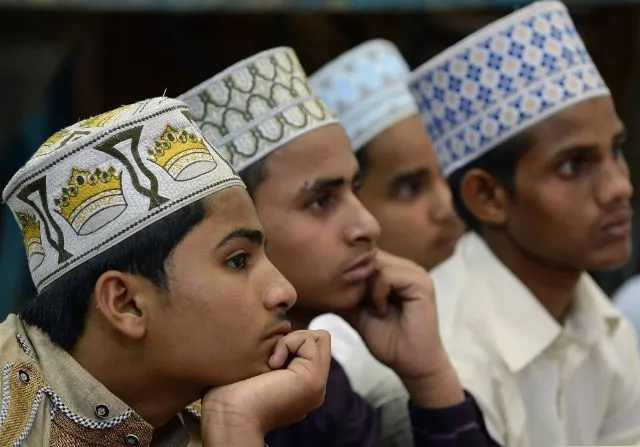Md Kaifee Alam, TwoCircles.net
New Delhi: Despite being a crucial vote bank for many parties, the number of Muslim Members of Parliament (MPs) has consistently remained low over the years. In this 18th Lok Sabha, it reached its second-lowest count ever. The current House of the People includes a total of 24 Muslim MPs, with two independents lawmakers, which is two fewer than the previous Lok Sabha that had 26 Muslim MPs.
Notably, there is not a single Muslim MP in the ruling National Democratic Alliance (NDA) government. Muslim representation is not only lacking in the legislature but also in the executive. Prime Minister Modi’s cabinet includes representatives from various states, castes, classes and religions, except Muslims, who constitute a significant portion of India’s population at 200 million. This marks the first time in Indian history that a cabinet has been sworn in without a Muslim minister.
Expressing concern over the diminishing number of Muslims in the Lok Sabha, Mohammed Ramees, 24, emphasizes the need for substantial representation of Muslims, if not equal. “In India, we require representation from various castes, tribes and religions. A community that holds the second-largest share of the country’s population should also have adequate representation,” he said.
Responding to the argument that even a non-Muslim MP can represent Muslims, he asked, “Then what is the need for representation?”
He strongly believes that representation holds immense value in a democracy. “It is easy to speculate that every MP will deliver justice regardless of their caste, color, religion, class, gender, etc. But at the grassroots level, everyone has their biases. To advocate effectively for a community, there must be someone from within that community because they will inherently understand and empathize more,” he emphasised.
Reasons Behind Decreasing Representation
Despite Muslim voters being perceived as pivotal in every election, their representation in legislative bodies remains disproportionately low, even in states where they constitute a significant percentage of the population.
The decline in the number of Muslim legislators can be attributed to a trend where many Opposition parties are reluctant to nominate Muslim candidates. This hesitation stems from heightened polarization in electoral contests, particularly since the Bharatiya Janata Party (BJP) came to power.
Rafia Perween, 22, from Delhi, argues that there is a systematic effort to marginalize Muslims, describing their exclusion from political representation as a form of “structural violence”.
“I believe, above all, Muslims are inadequately represented in Parliament because mainstream parties are aware of the severe deprivation faced by the Muslim community in the country. They are viewed not as deserving representation, but merely as deserving of acknowledgment. And this acknowledgment does not require their own representatives, as anyone from any community could fulfill the act of remembrance,” she said.
Mohd Tabish Khan, 21, a postgraduate student of political science at Delhi’s Jamia Millia Islamia, echoes similar sentiments and identifies the “politics of Hindutva” as the primary reason behind this disparity. He asserts that this brand of politics, championed by the BJP, has marginalized Muslims.
The shift in the political landscape reflects a broader reluctance among parties to field Muslim candidates. “Even other political parties hesitate to nominate Muslim candidates. These parties fear that nominating Muslims may lead Hindu voters to withdraw their support,” Khan explained.
Expectations from Newly Elected Muslim MPs
Despite the reduced presence of Muslims in the Lok Sabha this time, several new faces have entered the Lok Sabha. MPs such as Iqra Choudhary, who won from UP’s Kairana, Mohibullah Nadvi from UP’s Rampur and Yusuf Pathan from West Bengal’s Baharampur, have brought renewed hope from the community, especially among the youth.
Khan believes that education is crucial for empowering the community and anticipates these MPs to prioritize addressing the educational backwardness among Muslims. “My expectations from them are that they will work to uplift the educational standards of the Muslim community. Moreover, they should vocally oppose attempts to politically, socially and economically marginalise Muslims, both inside Parliament and on the streets,” he emphasized.
Expanding on his viewpoint, he noted that these MPs garnered significant support from Muslim voters and should therefore champion issues that affect their constituency.
Sharing her expectations, Perween stated, “The Muslim community needs their voices heard; the injustices they face deserve recognition. Muslims seek justice, and that’s the main reason we have expectations from them. I hope they find the courage to raise real issues and advocate for the marginalized and oppressed, especially when it is most needed.”
Ramees also emphasized the importance of justice, stating, “My only expectation from these MPs is that they stand for justice.”
However, not everyone shares Ramees’s optimism. Hiba Khan, a student at AJK Mass Communication and Research Centre, Jamia Millia Islamia, expressed skepticism, saying she has “no expectations” from any of them.
“They have their own necks to save, so they won’t be too forthright in supporting their own community,” she observed.
Despite their hopes, there is also a lingering doubt that the BJP not securing a majority on its own and PM Modi leading a coalition government will bring about any change. There is concern whether even if MPs attempt to speak up, they will be listened to or silenced, facing ridicule merely because of their religion, as seen in the previous term.
Discussing the BJP’s approach, Hiba remarked, “I don’t know if they will be heard or not. We know how the BJP works. With Modi still as the PM, they managed to suspend prominent Opposition leader Rahul Gandhi. Who knows what will happen to these Muslim MPs.”
Khan stressed the urgency of improving the social perception of Muslims. “I doubt they will be listened to more. Until the social image of Muslims is rectified, people won’t be inclined to hear them.”


